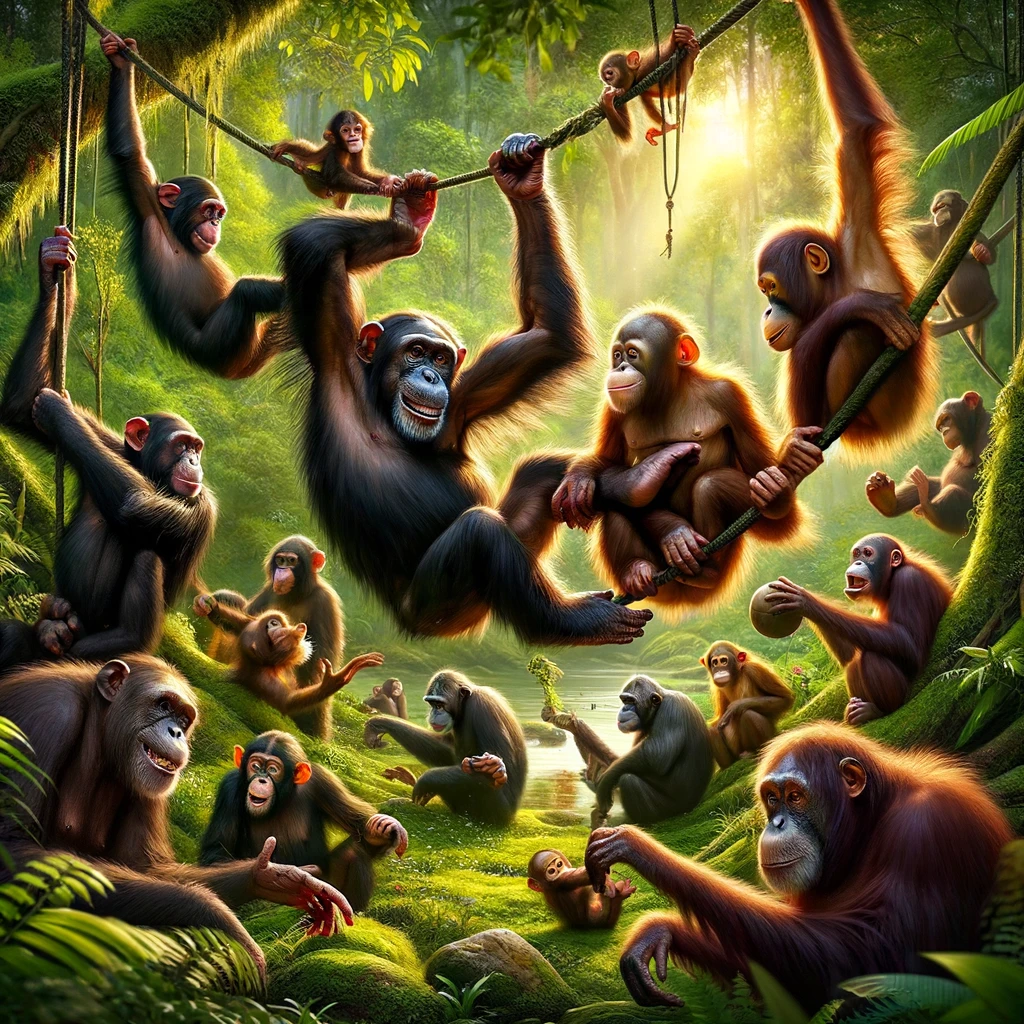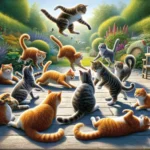About Us
Contact Us
Advertise With Us
Disclaimer
Privacy Policy
Terms & Conditions
Copyright © 2024 - BoldDiscussions.com

Mirth in the Wild: Animal Kingdom's Cheerful Banter.
In the intricate mosaic of existence, laughter emerges as a vibrant thread of happiness, traditionally viewed as a human exclusive delight. Yet, the line between human mirth and animal joviality fades, sparking curiosity about our animal companions' capacity for humor and playful banter. Could it be that animals too relish in the light-heartedness of laughter, participating in jests and joyful interactions akin to ours?
The animal world is surprisingly familiar with the subtleties of humor, showcasing behaviors remarkably similar to human frolics. The joy of laughter extends beyond human confines, enveloping creatures small and large in their warm embrace.
Giggles Among the Great Apes: Insights into Primate Play

Our closest kin in the animal realm, the great apes, partake in humor that mirrors human playfulness. Through extensive observation, including over 75 hours of video, researchers uncover a realm filled with pranks among orangutans, chimpanzees, bonobos, and gorillas. These jests range from gentle pinches to mock obstructions, highlighting a rich palette of playful interactions.
Isabel Laumer and her team's work at the University of California, Los Angeles, casts light on the intricate social dynamics and intellect driving these actions. It points to a shared heritage of humor, tracing back millions of years to our common ancestors, revealing laughter's ancient roots in life's tapestry.
Jovial Canines: The Humorous Side of Dogs

Dogs, our cherished companions, also display a keen sense of humor. Their playful antics, such as endless games of fetch or their laughter-like panting during play, illustrate their unique brand of comedy. Research, like that of Patricia Simonette, demonstrates how these playful sounds can significantly ease stress, underscoring laughter's healing power.
A Spectrum of Playfulness Across Species
The realm of animal jest extends across various species, from the playful chatters of dolphins and elephants to the teasing antics of parrots towards their dog friends. These behaviors suggest a widespread inclination towards playfulness, hinting at a universal sense of humor bridging species.
Rats and Revelry: Laughter in the Lab

Even in controlled environments, the playful nature of animals is evident. Studies by Jeffrey Bergdorf at Northwestern University reveal that rats express joy, similar to laughter when tickled. This fascinating behavior not only underscores animals' capacity for happiness but also opens pathways for new approaches to human psychological health.
Unraveling the Mystery of Animal Humor
The evidence of humor in the animal domain is compelling, yet it raises intriguing questions about our interpretation of these behaviors. Do these playful acts truly reflect a sense of humor, or do they fulfill other social and evolutionary roles? The debate is ongoing, but it's evident that the boundary separating human laughter from animal joy is more permeable than once thought.
The Significance of Humor Among Beasts
Similar to its role in human societies, humor might serve to cement social bonds and ease interactions within animal communities. Although further exploration is required, the notion that laughter and play could promote unity among animals presents a captivating view of their social lives.
As we delve into the enchanting realm of animal laughter, we're reminded of the universal appeal of joy and playfulness. Laughter acts as a connecting thread across species, a shared language of happiness that enriches the mosaic of existence. Our journey into the heart of animal mirth invites us to celebrate the laughter that unites us with our animal brethren, dancing together in the endless rhythm of life.
Disclaimer.
This article provides information only and should not be construed as advice.
It is provided without warranty of any kind. Also please note that content on this platform may be subject to copyrighted material. if you believe we have used your content in any way then please get in touch with us. We will take down your content immediately.
Share This Post





BOLDDISCUSSIONS
We Produce Content That informs, Educates And Entertains People Around The World to stay updated on every topic with confidence.
Copyright © 2024 – BoldDiscussions.com

